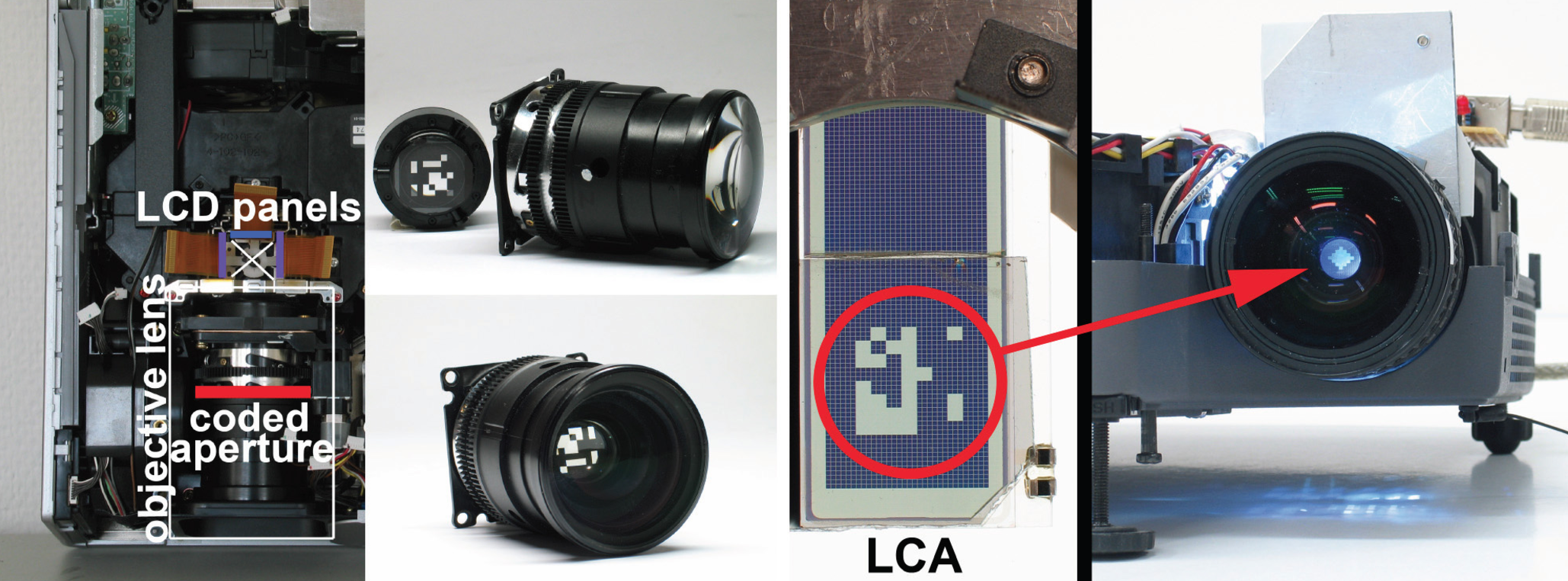Abstract
Coding a projector’s aperture plane with adaptive patterns together with inverse filtering allow the depth-of-field of projected imagery to be increased. We present two prototypes and corresponding algorithms for static and programmable apertures. We also explain how these patterns can be computed at int eractive rates, by taking into account the image content and limitations of the human visual system. Applications such as projector defocus compensation, hig h-quality projector depixelation, and increased temporal contrast of projected video sequences can be supported. Coded apertures are a step towards next-generation auto-iris projector lenses.

